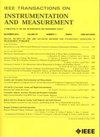Accurate Calibration for Magnetic Measurements Using Deep Learning
IF 5.6
2区 工程技术
Q1 ENGINEERING, ELECTRICAL & ELECTRONIC
IEEE Transactions on Instrumentation and Measurement
Pub Date : 2025-04-28
DOI:10.1109/TIM.2025.3565112
引用次数: 0
Abstract
Accurate magnetic measurement is necessary in various applications. However, due to the interferences existing in the magnetic field, the calibration is typically required to correct magnetic measurements. This study introduces a deep learning method, namely, magnetic measurement calibration network (MagMCNet), to calibrate the raw measurements of magnetic sensors. Unlike the conventional methods that are reliant on the predefined measurement error models, our approach adopts deep networks to learn rich calibration parameters to effectively address the nonlinear measurement errors that the existing methods cannot resolve. Given the limited computational resources in practical applications, we integrate two networks in MagMCNet. Specifically, a complex network transfers its prediction capability to a lightweight network through a hybrid regression loss, enabling the real-time calibration. In addition, two new evaluation metrics are introduced for the direct assessment of calibration performance. The proposed approach is rigorously evaluated across simulated, laboratory, and practical application settings. MagMCNet achieves the calibration error of使用深度学习的磁测量精确校准
在各种应用中,精确的磁测量是必要的。然而,由于磁场中存在干扰,通常需要进行校准以纠正磁测量。本研究引入一种深度学习方法,即磁测量校准网络(MagMCNet),对磁传感器的原始测量值进行校准。与传统方法依赖于预定义的测量误差模型不同,该方法采用深度网络学习丰富的校准参数,有效地解决了现有方法无法解决的非线性测量误差。考虑到实际应用中计算资源有限,我们在MagMCNet中集成了两个网络。具体来说,复杂网络通过混合回归损失将其预测能力转移到轻量级网络,从而实现实时校准。此外,还引入了两个新的评估指标,用于直接评估校准性能。所提出的方法经过了模拟、实验室和实际应用环境的严格评估。在有铁磁干扰的评估中,MagMCNet的校准误差为0.04~ 0.56 ~ 0.mg。实验结果表明,MagMCNet的性能始终优于相关方法,在复杂应用中具有最先进的性能。
本文章由计算机程序翻译,如有差异,请以英文原文为准。
求助全文
约1分钟内获得全文
求助全文
来源期刊

IEEE Transactions on Instrumentation and Measurement
工程技术-工程:电子与电气
CiteScore
9.00
自引率
23.20%
发文量
1294
审稿时长
3.9 months
期刊介绍:
Papers are sought that address innovative solutions to the development and use of electrical and electronic instruments and equipment to measure, monitor and/or record physical phenomena for the purpose of advancing measurement science, methods, functionality and applications. The scope of these papers may encompass: (1) theory, methodology, and practice of measurement; (2) design, development and evaluation of instrumentation and measurement systems and components used in generating, acquiring, conditioning and processing signals; (3) analysis, representation, display, and preservation of the information obtained from a set of measurements; and (4) scientific and technical support to establishment and maintenance of technical standards in the field of Instrumentation and Measurement.
 求助内容:
求助内容: 应助结果提醒方式:
应助结果提醒方式:


